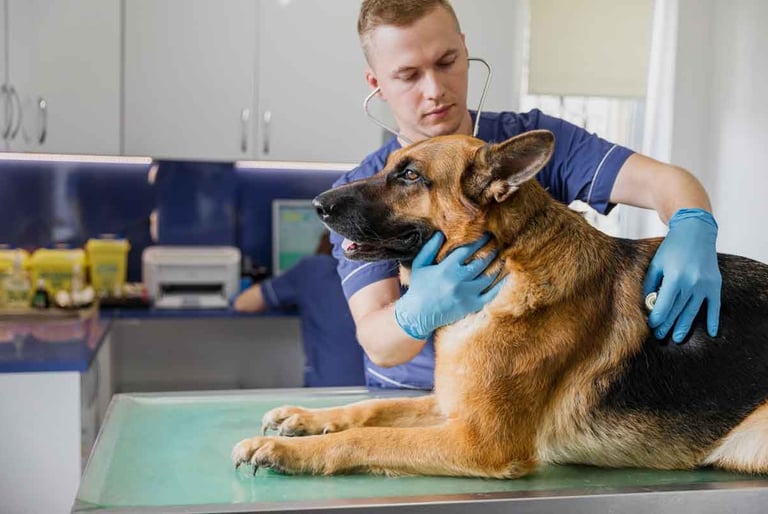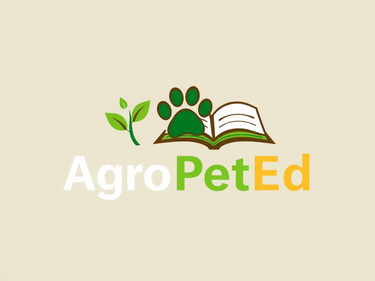
Ultimate Guide to Caring for Your Pregnant Dog: Key Tips for a Safe Delivery
Discover how to care for a pregnant dog with this comprehensive guide. Learn about nutrition, exercise, preparation for delivery, and warning signs to ensure the health of your pet and her puppies. 🐶💖
PETS
2/3/20253 min read
Pregnancy in dogs is a delicate process that requires special care to ensure the well-being of both the mother and her puppies. In this guide, we will explain the key aspects of providing the best care during gestation, from nutrition to preparation for delivery.
1. Diagnosing Pregnancy
The first step in caring for a pregnant dog is confirming her condition. Early signs may include changes in appetite, increased affection, or fatigue. For an accurate diagnosis, a veterinarian can perform an ultrasound between days 21 and 30 of gestation or an X-ray after day 45.
2. Proper Nutrition
A balanced diet is essential during pregnancy. Recommendations include:
Providing high-quality food, preferably formulated for puppies or pregnant dogs.
Gradually increasing the amount of food starting from the second half of gestation.
Including fatty acid and calcium supplements under veterinary supervision.
3. Exercise and Well-being
Moderate physical activity helps prevent obesity and facilitates delivery. Recommendations include:
Short, regular walks.
Avoiding rough play or excessive jumping.
Providing a calm, stress-free environment.
4. Hormonal and Emotional Changes
During pregnancy, dogs may experience hormonal changes that affect their behavior. Some may become more affectionate and seek attention, while others may become more reserved. It is essential to provide a calm, stress-free environment and respect their emotional and rest needs.
5. Deworming and Disease Prevention
Deworming is a key aspect of caring for a pregnant dog. It is recommended to deworm before pregnancy, as some antiparasitic medications are not safe during gestation. Additionally, it is important to follow a proper vaccination plan under veterinary supervision to prevent diseases that could affect the puppies.
6. Weight Control and Fetal Development
Excessive weight gain can lead to complications during delivery. It is recommended to monitor her diet and weight through regular veterinary check-ups. Through ultrasounds and physical exams, the veterinarian can assess fetal development and anticipate potential complications.
7. Warning Signs During Gestation
It is crucial to watch for signs that may indicate health problems, such as:
Prolonged loss of appetite.
Abnormal bleeding or foul-smelling discharge.
Extreme lethargy or difficulty moving.
Excessive panting or signs of pain.
If any of these symptoms occur, consult a veterinarian immediately to avoid risks to the mother and her puppies.
8. Veterinary Visits
Regular check-ups with the veterinarian allow for monitoring the dog’s health and detecting potential complications. Additionally, the specialist can recommend safe deworming treatments and necessary vaccinations before delivery.
9. Preparing for Delivery
Around day 58 of gestation, it is important to prepare a comfortable and safe area for delivery:
Choose a quiet place with a padded whelping box.
Ensure an adequate temperature (between 25-30°C).
Have cleaning supplies on hand and keep the veterinarian’s contact information nearby in case of emergencies.
10. Signs of Labor and Postpartum Care
Delivery usually occurs between days 58 and 65 of gestation. Signs of impending labor include restlessness, panting, and a drop in body temperature. During delivery, it is essential to supervise without interfering. If complications arise (such as contractions without expulsion for more than two hours), contact the veterinarian immediately.
After delivery, monitor the mother’s lactation and behavior. Ensuring the puppies are feeding properly and that the mother receives a nutritious diet to maintain her energy is key to a successful recovery.
11. Managing Puppy Weaning
Weaning is a gradual process that should begin around 3-4 weeks of age. Recommendations include:
Slowly introducing moistened solid food.
Gradually reducing nursing time.
Supervising to ensure the puppies are well-fed and active. Successful weaning ensures proper puppy development and reduces physical strain on the mother.
12. Postpartum Care for the Mother
After delivery, the mother requires special care for her recovery:
Keep her in a clean, quiet area.
Ensure a nutritious and balanced diet.
Monitor milk production and prevent infections such as mastitis.
Schedule a veterinary visit to assess her health.
Conclusion
Pregnancy in dogs is a process that requires detailed attention and specific care to ensure the health of the mother and her puppies. Addressing these additional aspects of caring for a pregnant dog not only guarantees a healthy pregnancy but also prevents complications and promotes the well-being of both the mother and her puppies. Proper management during and after gestation is key to a successful breeding experience. 🐾💕




AgroPetEd
Information about animals and agricultural practices
© 2025. All rights reserved.
